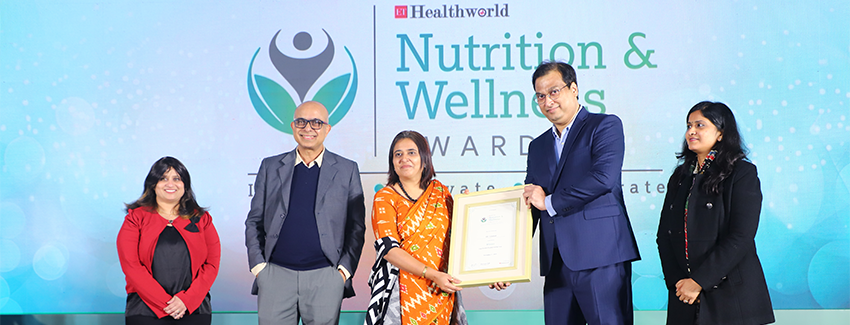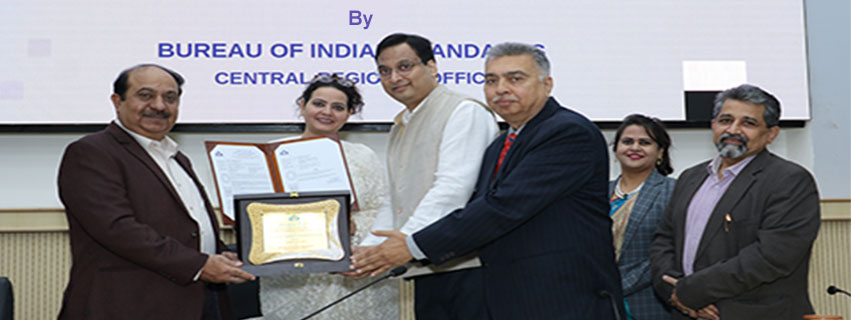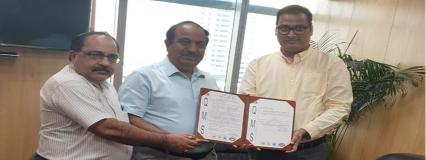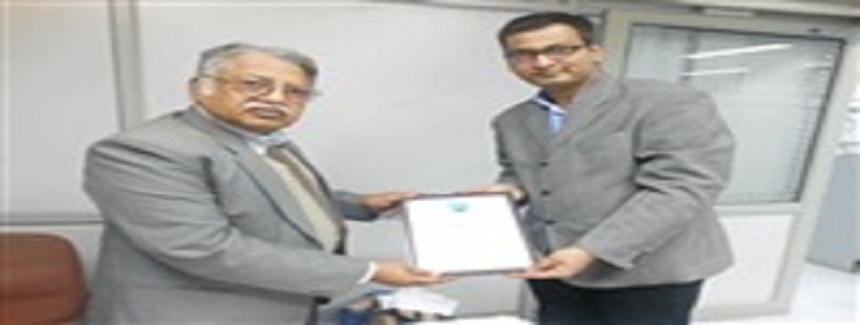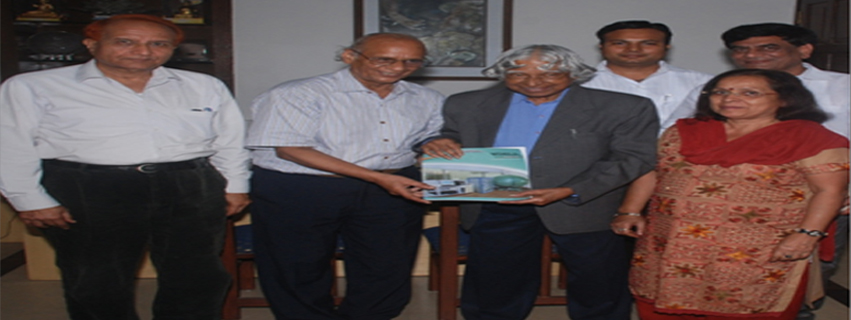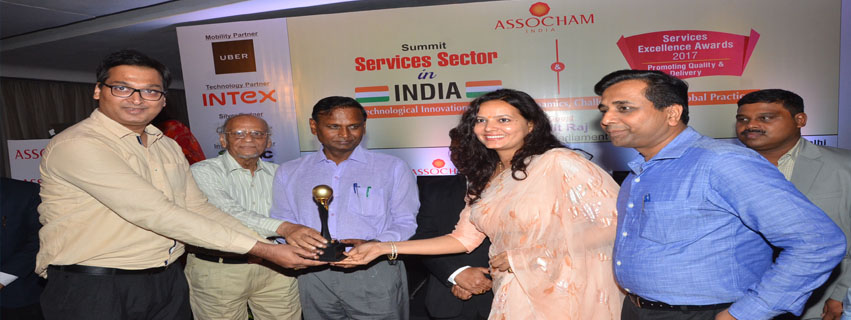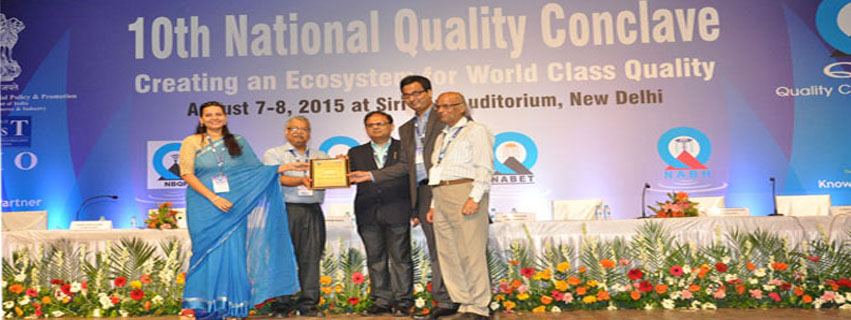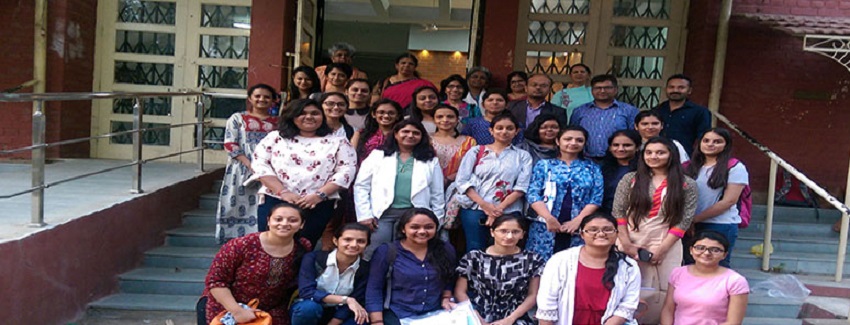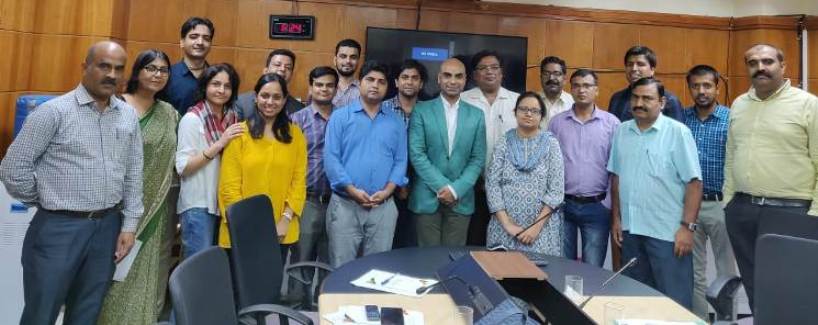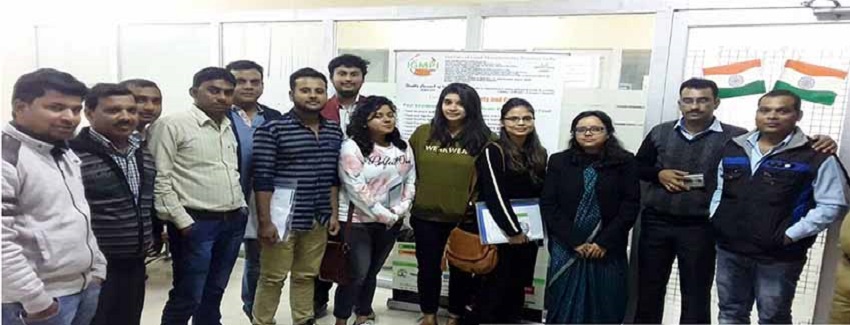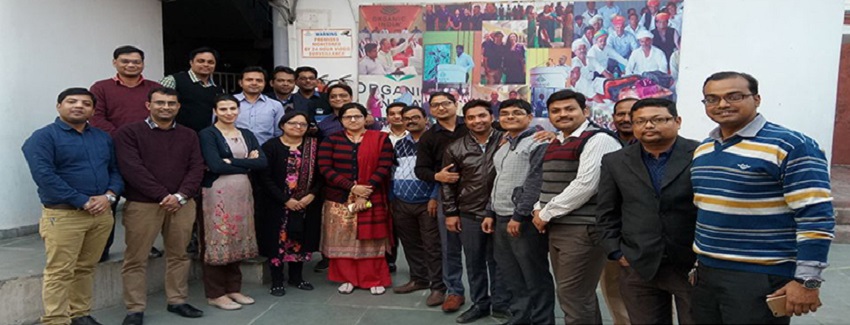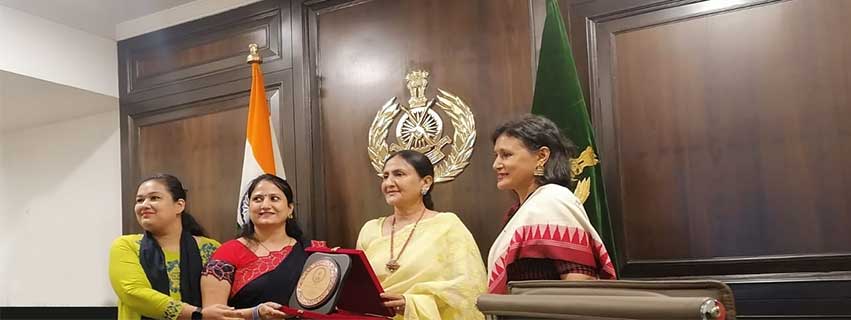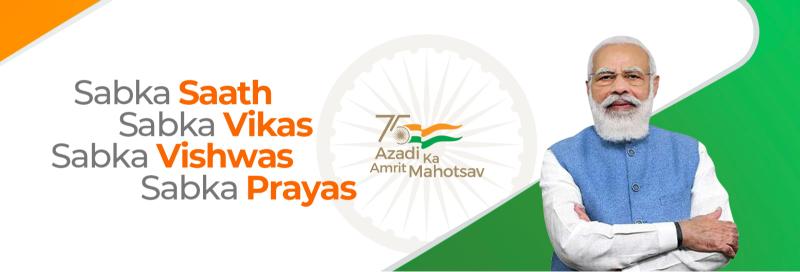(An Autonomous Body Recognized by Ministry of Commerce & Industry, Government of India)
Competency based placement focussed Education | Training | Research | Consultancy
Post Graduate Diploma/ Executive Diploma in Environmental Studies and Resources Management (PGDESRM/EDESRM)
Climate change has impacted every dimension of human life creating havoc through flash floods, earthquakes and wildfires to name a few. It has become increasingly apparent that a new task force is needed to meet competencies for tackling climate change and global emissions targets. The need for a science based upskilling is clear as modern environmental problems impact governments and industrial sector alike. IGMPI has launched a PG Diploma/Executive Diploma course in Environmental Studies and Resource management for the benefit of experienced professionals and newcomers to the industrial sector. This diploma course trains individuals to assume and lead managerial positions in the impact sector – particularly climate protection interfacing strategy, scientific communication and project management. Environmental Sciences encompass a broad range of jobs, including those with a focus on natural/physical sciences as well as social sciences and humanities.
A focus on environmental studies is crucial to strategies the available natural resource and their sustainable utilization. Through a myriad of case studies throughout the course, students will be able to identify the pain areas in natural resource management along with identifying suitable management and conservation strategies in an organization. They will be able to communicate important milestones and proceeding in workshops, conferences and seminars. Finally, they would be instrumental in policy research teams and public-private advisories on environmental management.
Programme Structure
Module 1 : Environmental Studies and Ecosystem
- Definition and Scope and Importance of Environmental Studies
- Interdisciplinary Nature of Environmental Studies
- Types of Ecosystems (Terrestrial, Aquatic)
- Structure and Function of Ecosystems
- Biodiversity: Definition, Importance, threats and Conservation
Module 2 : Natural Resources: Types and Management
- Renewable and Non-renewable Resources
- Conservation and Sustainable Use of Resources
- Case Studies on Natural Resource Management
Module 3 : Water Resources Management
- Hydrological Cycle
- Sources of Water: Surface Water, Groundwater
- Water Conservation Techniques
- Challenges in Water Resource Management
Module 4 : Forest Resources
- Types of Forests
- Forest Ecosystem Services
- Deforestation and its Impact
- Sustainable Forest Management Practices
Module 5 : Soil and Land Resources
- Soil Formation and Composition
- Types of Soils
- Soil Degradation and Conservation
- Land Use Planning and Management
Module 6 : Energy Resources
- Conventional and Non-conventional Energy Sources
- Renewable Energy Technologies
- Energy Conservation and Efficiency
- Global Energy Policies
Module 7 : Mineral Resources
- Types of Minerals
- Mining Methods and Environmental Impact
- Sustainable Mining Practices
- Recycling and Reuse of Minerals
Module 8 : Environmental Pollution and Control
- Types of Pollution: Air, Water, Soil, Noise
- Sources and Effects of Pollution
- Pollution Control Technologies
- Global Initiatives to Combat Pollution
Module 9 : Climate Change and Global Warming
- Causes and Consequences of Climate Change
- Mitigation and Adaptation Strategies
- International Agreements on Climate Change (e.g., Paris Agreement)
- Role of Individuals and Communities in Climate Action
Module 10 : Environmental Policies and Legislation
- Global conventions on Environment Protection
- Regulatory Frameworks for Environmental Protection in India
- Environmental Impact Assessment (EIA)
- Role of Government and Non-Governmental Organizations
Module 11 : Sustainable Development
- Concept and Principles of Sustainable Development
- Sustainable Development Goals (SDGs)
- Strategies for Sustainable Development
- Case Studies on Sustainable Practices
Module 12 : Environmental Ethics and Education
- Importance of Environmental Ethics
- Ethical Issues in Environmental Management
- Role of Education in Promoting Environmental Awareness
- Community Participation and Environmental Movements
Module 13 : Waste Management
- Types of Waste: Solid, Liquid, Hazardous
- Waste Management Techniques
- Circular economy
Module 14 : Urbanization and Environmental Impact
- Urban Growth and its Environmental Effects
- Sustainable Urban Planning
- Green Infrastructure and Urban Ecology
- Case Studies on Urban Sustainability
Module 15 : Agricultural and Rural Environment
- Sustainable Agricultural Practices
- Impact of Agriculture on Environment
- Rural Development and Natural Resource Management
- Agroforestry and Conservation Agriculture
Module 16 : Marine and Coastal Resource Management
- Marine Ecosystems and Biodiversity
- Coastal Zone Management
- Marine Pollution and Control Measures
- Sustainable Fisheries and Aquaculture
Module 17 : Disaster Management and Risk Reduction
- Types of Natural Disasters
- Environmental Impact of Disasters
- Disaster Preparedness and Mitigation
- Community-based Disaster Risk Management
Module 18 : Technological Advances in Environmental Management
- Remote Sensing and GIS in Environmental Monitoring
- Biotechnology for Environmental Conservation
- Innovations in Renewable Energy
- Smart and Sustainable Technologies
Module 19: Industry Based Case Study
Module 20: Capstone Project
Eligibility
Graduates in any discipline are eligible for our Post Graduate Diploma, Executive Diploma and Professional Certification Programmes.
Programme Duration
The minimum duration to complete the PG diploma programme is 12 months and maximum is 24 months. The minimum duration to complete the executive diploma programme is 6 months and maximum is 12 months.
Programme Mode
Registrations are currently open for regular and Part-time (Online Live Classes) both modes.
Programme Deliverables
A comprehensive study material for all the modules in hard copies ensuring the needs of the audience. The accompanying training material is appropriately aligned with the current Industry’s expectations.
- Assignments for all the programme modules for continuous evaluation and guidance.
- Interactive or online live sessions on all key areas of the programme giving all flexibility to the participants.
- Online Live Classes/Part-time for all the modules will be conducted on the weekends. Moreover, a doubt clearing session will also be scheduled before the examination.
- All the efforts are made by IGMPI faculty members to make the entire programme modules easily understandable.
- Assessment and evaluation for all the programme modules in order to enhance the levels of competencies and skills of the participants leading towards the objective of application in the job.
- At the end of each programme modules, the trainers shall obtain feedback from the participants using specially designed questionnaires.
- All learning and training delivery initiatives shall be conducted in English.
Examination & Certification
All the participants are obliged to timely submit completed assessment assignments (during the programme, usually after every module) and appear for an online proctored exam at the end of the programme. After successful completion, the participants will be awarded Post Graduate Diploma/ Executive Diploma in Environmental Studies and Resources Management by Centre for Environmental Health and Safety, IGMPI. For all the above mentioned modules elaborate programme material, self-assessment assignments and project work details would be provided by the Institute from time to time. Details get updated on the webpage as well.
Discipline in Classes and Examination
Every student is required to observe a disciplined behaviour during her/his classes, assessments & examinations and to follow instructions from the Professors. Any act of indiscipline may result into discredit & it will be mentioned in her/his academic report.
Placement Assistance & Corporate Relations
The Institute has partnered with many organizations for providing with placement assistance to its participants. Besides, it has a robust placement cell comprised of senior level Human Resources professionals and Talent Acquisition experts which maintains close links with business and industry. This cell is continuously engaged in promoting the employability of our participants and encouraging the concerned Human Resource department and Hiring Managers to recruit/hire our participants for their vacant positions. The efforts of our placement cell also include helping with professional resume writing and interview skills.
In recent months, the Institute has witnessed more and more participation from professionals working with global think tanks. The IGMPI ‘s Corporate Resource Division actively recommends our students and training participants for various job requirements and specialized roles to Human Resource, Talent Acquisition as well as the heads of various departments in the industrial sector on a regular basis.
Future career prospects
In this course, participants will be able to learn and understand and evaluate critical issues in environmental science that are driving changes in effective global governance. They will also be able to assess the implications for businesses and major public and private entities, and make key decisions for conservation and preservation of ecosystems and the available natural resources. In India, around 20% of employees work in the environment sector, which is expected to double by 2030. It is expected that by 2030, around 24 million green jobs will be available around the world. After pursuing environmental science courses, the candidate can work in various fields like the climate monitoring think tank task forces, pollution control board, environmental consultancy firms, public health sector, etc.
Programme Fee Details
Programme fee details will appear here.
Last date for submitting completed Application Form: 6th Mar 2026.
For further enquiries, call or write to us on:
18001031071
(Toll Free -9:00 am to 5:30 pm IST-except on Central Government holidays)/
info@igmpi.ac.in
NEWSLETTER
Other Programmes
- Business Sustainability (PGDBS/EDBS)
- Remote Sensing and Geographic Information System (PGDRSGIS/EDRSGIS)
- Power Management (PGDPM/EDPM)
- Oil & Gas Technology and Management (PGDOGTM/EDOGTM)
- Petroleum Technology and Management (PGDPTM/EDPTM)
- Green Technologies (PGDGT/EDGT)
- Fire Technology & Industrial Safety Management (PGDFTISM/EDFTISM)
- Water Resource Technology and Management (PGDWRTM/EDWRTM)
- Urban Planning (PGDUP/EDUP)
- Public Policy and Sustainable Development (PGDPPSD/EDPPSD)
- Natural Resource and Biodiversity Management (PGDNRBM/EDNRBM)
- Corporate Affairs Management (PGDCAM/EDCAM)
- Business and Human Rights (PGDBHR/EDBHR)
- Geoinformatics (PGDGI/EDGI)
- Climate Change Technology (PGDCCT/EDCCT)
- Environmental Law and Policy (PGDELP/EDELP)
- Environmental Social & Governance (PGDESG/EDESG)
- Disaster Management (PGDDM/EDDM)
- Waste Management (PGDWM/EDWM)
- Sustainable Agriculture (PGDSA/EDSA)
- Sustainable Development (PGDSD/EDSD)
- Industrial Safety Management (PGDISM/EDISM)
- Renewable Energy Management (PGDREM/EDREM)
- Corporate Social Responsibility and Sustainable Management (PGDCSRSM/EDCSRSM)
- Environmental Health and Safety (PGDEHS/EDEHS)
- Industrial Hygiene (PGDIH/EDIH)

